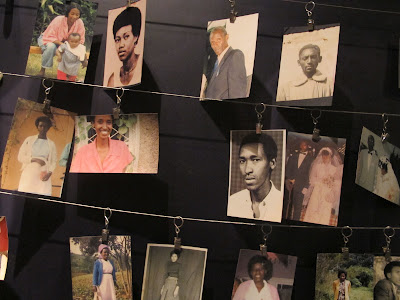Some people think my life is glamourous, but traveling around the world is not only left for jet-setters, it also includes missionaries, doctors, theatre troupes, backpackers and regular people like me. It has been a week since I came back from Liberia and my body is slowly catching up. Cold sores, a sinus infection, cramps and now one of my molars is fractured, as it seems I’ve been grinding my teeth at night out of stress. “I don’t understand how you do it?” Alex asks, “You go to these places and listen to these stories. How can you come back to your reality and not feel affected?” Truth is, I sometimes do. I still remember the story of the man who witnessed the killing of his son by armed guerillas some years ago. “They opened his chest with a knife, took out his heart and eat it. They believed my son’s heart would make them powerful.” This story kept me awake for a few nights. I also got to see the other part of the story where people are rebuilding a country and children are being raised without images of war. It’s funny how you can feel emphatic and at the same time, it is hard to relate. I have never been at war, but I certainly understand resilience; I am from a country currently fighting a war, but I know that violence is not the only thing that exists. “I will never buy a house or invest outside Liberia,” Shadrach mentioned during one of our conversations, “I’ll go to Cambridge and get my pHd but I want to live here.” My friends emphasize that we take certain things for granted, electricity, Sunday brunch, public libraries, street jazz, transportation systems and nail polish. What is that which is taken for granted in the places I visit? Possibly cassava leaves, spicy food, children raised by entire communities, festive funerals and drumbeats.
Rockaways
3 years ago






